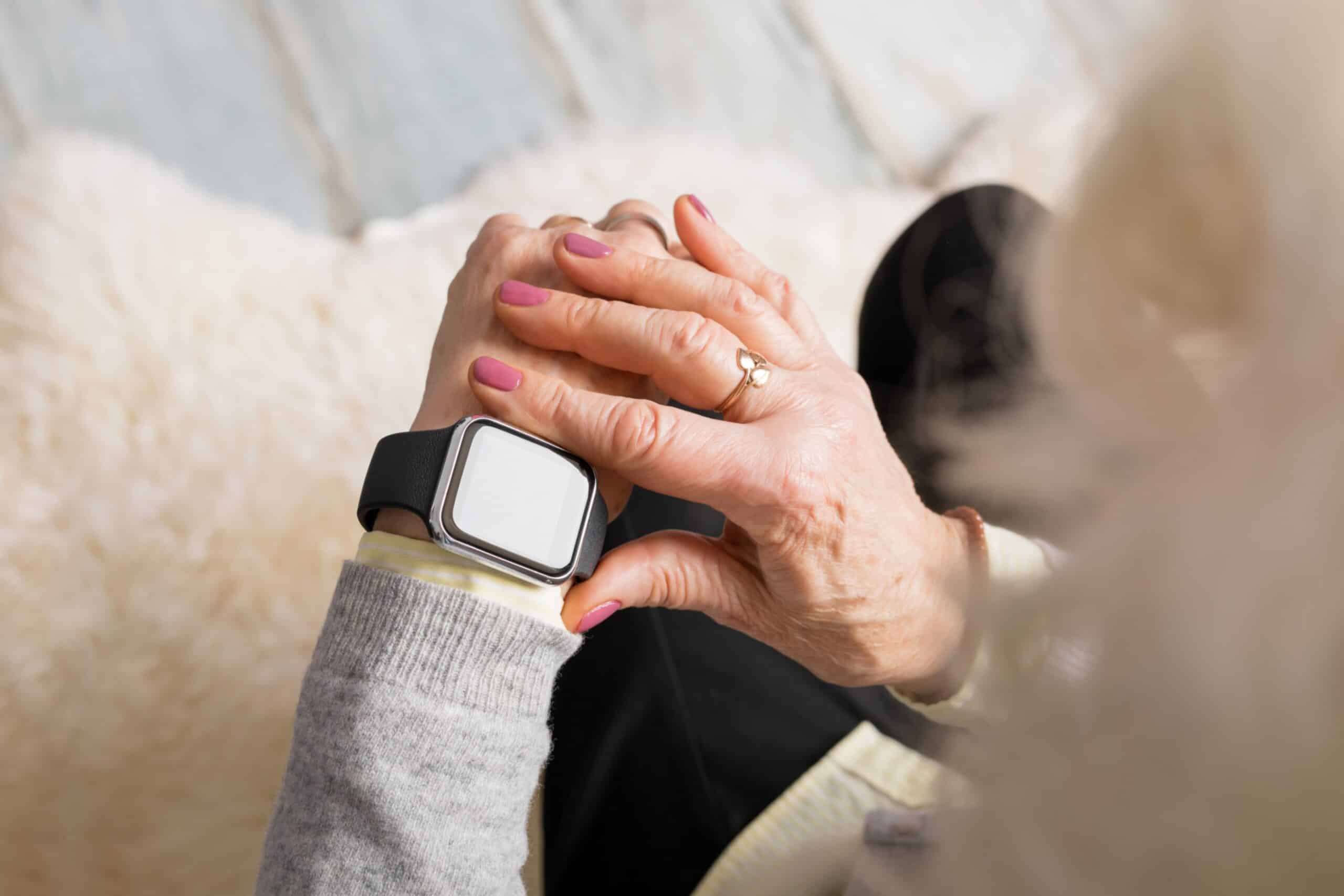It was important for researchers to understand feasibility in participants’ natural environments because behaviour in the lab or clinic may not reflect what occurs in day-to-day living, Van Ooteghem said.
The researchers recruited 39 participants with cerebrovascular or neurodegenerative diseases to wear up to five devices on their ankles, wrists and chest continuously for seven days at home and in the communityfollowing a clinic visit. For people living with complex health conditions, there are advantages to using multiple sensors to capture specific behaviours and symptoms, for example, upper versus lower limb impairment.Participants wore at least three devices for a median of 98 per cent of the study period. They also enrolled with a study partner who could help them navigate any issues that arose during the study.
Beth Godkin, a Waterloo Kinesiology and Health Sciences doctoral student and first author on the paper, said the willingness to wear the technology might have been influenced by the support offered to participants during the study. Through interviews with participants and study partners, researchers also learned that there is still room for improvement when it comes to the technology itself that could enhance the user experience.
“Participants felt it was important to optimize comfort, ease of use and appearance if they needed to wear sensors for long periods and felt that continued effort should be made to ensure the technology does not interfere with activities of daily living,” Godkin said. “The generally positive response from participants and willingness to engage in multi-sensor wear over an extended period is the necessary first step towards meaningful integration of our approach in larger research studies and eventually, for uptake within clinical care.”
The study, Feasibility of a continuous, multi-sensor remote health monitoring approach in persons living with neurodegenerative disease, co-authored by Godkin, Van Ooteghem and others at Waterloo, alongside other investigators within the Ontario Neurodegenerative Disease Research Initiative, was published in the Journal of Neurology.
Funding for the study was provided through the Ontario Brain Institute.




